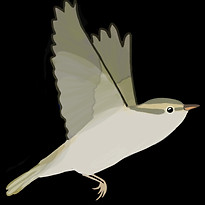Found an injured bird?: Contact NParks at 1800 476 1600 (24 hour hotline) or ACRES at 97837782 (7am-1am daily).
Dead birds: Contact Dead Birds Hotline at 9876 4997 (WhatsApp) or @deadbirdhotline (Telegram).

ABOUT US
HOW WE STARTED
We are a collective of NTU undergrads, PhD students, and alumni from diverse schools, brought together by a shared concern for the rising toll of bird collisions on campus and around Singapore. Since witnessing the deaths of migratory flycatchers at the SADM building in 2022, our team has dedicated the past three years to daily monitoring, rescue efforts, and documenting bird-building collisions. What began as a small volunteer effort has grown into a community of over 50 active members, supported by scientists, architects, and conservationists who share our vision of creating a safer and more sustainable campus.


Our work goes beyond monitoring. We engage with experts, consult the school community, and ground our proposals in robust scientific evidence. With 181 collisions from about 30 species species documented—including threatened species like the Blue-eared Kingfisher and Brown-chested Jungle Flycatcher—we believe urgent, evidence-based action is needed. Our recommendations, such as installing bird-safe decals, align with NParks’ Bird-Safe Building Guidelines and NTU’s sustainability goals.
OUR APPROACH

WHY AVIGATE?
Avigate is a word play on the word navigate, tailored for birds (avians). It reflects our vision of helping avians find their way safely through the complex, often confusing landscapes they face today. The name captures both the spirit of flight and our commitment to supporting birds as they navigate an ever-changing environment.
SEE US IN ACTION

Pictured below are our volunteers and the many other people who assist in responding to bird collisions and spreading awareness by leading nature walks.
OUR PARTNERS
Project Avigate collaborates with a diverse range of partners, including academic institutions, government agencies, and non-profit organizations that share our commitment to safeguarding wildlife. Together, we work towards developing innovative solutions and promoting best practices to ensure the safety and well-being of birds in urban environments.











